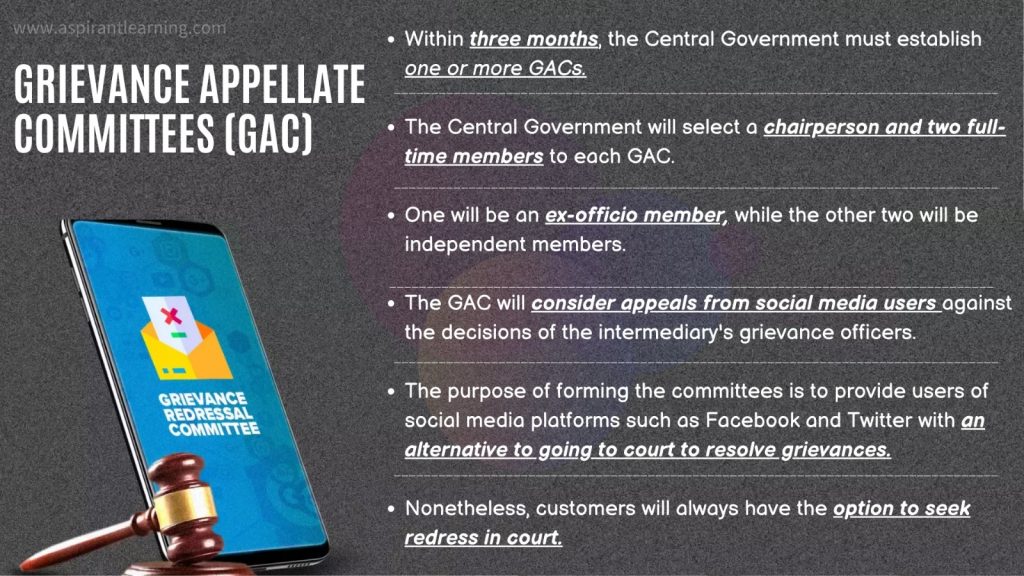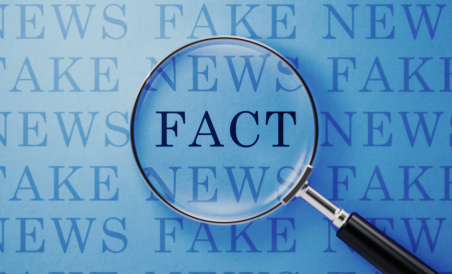News Highlight
Draconian rules: On the impact of the IT (Intermediary Guidelines and Digital Media Ethics Code) Amendment Rules, 2023.
Key Takeaway
- Immediate efforts to combat misinformation, often known as “false news” and the slightly inaccurate “fake news,” are required.
- This, however, begs the question of whether the Union government or its divisions can act as the regulating entity.
- The Union government has included a provision for a fact-checking unit to identify fake, inaccurate, or misleading online content relating to the government in the IT Amendment Rules, 2023.
- Intermediaries, such as social media corporations or internet service providers, are used to combat such content recognised by this unit.
- It must act or risk losing its “safe harbour” protections under Section 79 of the IT Act.
- It permits intermediaries to avoid liability for content posted by third parties on their websites.
Key Amendments to IT Rules, 2021
- New Guidelines for Social Media Intermediaries
- Today, intermediaries are only required to advise users about prohibiting uploading specific harmful/illegal content.
- These amendments make intermediaries legally obligated to take reasonable measures to prevent users from uploading such content.
- The new clause will ensure that the intermediary’s obligation is more than a formality.
- The amendment requires intermediaries to respect the rights given to users under Indian Constitution Articles 14, 19, and 21.
- A fair expectation of due diligence, privacy, and transparency is included.
- It is critical for efficient communication of the intermediary’s rules and regulations to take place in regional Indian languages as well.
- Amendments to the Rule 3
- The justifications in rule 3(1)(b)(ii) have been rationalised by deleting the phrases “defamatory” and “libellous.”
- Legal action will be taken to ascertain whether the content is defamatory or libellous.
- Some of the content categories in Rule 3’s subclause 1 (rule 3(1)(b)) have been rewritten to address misinformation and content that could inspire violence between religious/caste groups.
- Establishment of Grievance Appellate Committee
- Grievance Appellate Committee(s) will be formed to allow users to challenge intermediaries’ inaction or decisions on user complaints.
- Nonetheless, customers will always be able to seek redress in court.
Key Provisions of IT Rules, 2021
- Mandates Social Media to Exercise Greater Diligence
- The IT Guidelines (2021) require social media platforms to be more cautious about the material on their platforms.
- Establish a Grievance Officer
- They must establish a grievance redressal mechanism and remove unlawful and unfitting content within stipulated time frames.
- Ensuring the Online Safety and Dignity of Users
- Intermediaries must remove or disable access to content that exposes persons’ private parts within 24 hours of receiving a complaint.
- Display such individuals in full or partial nudity, in a sexual act, or in mimicry, including altered photos, and so forth.
- Educating Users about the Privacy Policies
- Social media networks’ privacy policies must ensure that users are taught about not spreading copyrighted information.
- Anything perceived as libellous, racially or ethnically offensive, paedophilic, endangering India’s unity, integrity, defence, security, or sovereignty, or violating any modern law.
The aim of these amendments
- Online gaming and social media intermediaries must use greater caution.
- To ensure the safety and trust of the Digital Nagriks and to provide every possibility for entrepreneurs and innovation.
- Let the Indian online gaming ecosystem expand and grow, becoming a key driver of India’s trillion-dollar digital economy objective by 2025-26.
Merits of the new rules
- The new provision on the legal need to ensure rule compliance will ensure that the intermediary’s obligation is more than a formality.
- This is because SMIs are now obligated to “make reasonable” measures to prevent users from hosting banned content on their platforms.
- This significantly increases SMIs’ responsibilities and capacity to control and moderate content on their platforms.
- Given the role of SMIs in public debate and the consequences of their activities on people’s basic rights, the horizontal application of fundamental rights is commendable.
- When a complaint is received, SMIs must erase the information or a communication link relating to the six forbidden content categories.
- They must remove such information within 72 hours of receiving a complaint.
- Given the virality with which content spreads, this is a key step in limiting its dissemination.
- Providing “accessibility” may compel SMIs to increase inclusion in the SMI ecosystem, such as;
- Allowing people with disabilities and people from different language backgrounds to participate.
- SMIs’ in-house grievance redressal will now be more accountable, and the appellate procedure will be more accessible to users.

Pic Courtesy: Deccan Herald
Content Source: The Hindu



